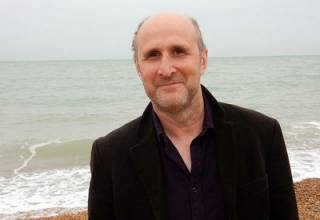Academic Position:
Department: Geography
Email: a.barry@ucl.ac.uk
UCL Website: https://www.geog.ucl.ac.uk/people/academic-staff/andrew-barry
Biography:
I have long been concerned with the relations between science, politics and the environment. As an undergraduate I studied Physics and the History and Philosophy of Science, but also wrote articles for student magazines on the Centre for Alternative Technology in Wales, on an inquiry to develop a nuclear power station on the Suffolk coast (Sizewell B), and on the coming National Mineworkers Union strike. My more recent interest in environmental politics has developed from three specific research projects. The first was a study of the conduct of environmental direct action in the UK in the mid-1990s. This became the focus of a chapter of my book, Political Machines: Governing a Technological Society (2001). The second was a project on the development of interdisciplinary research on climate change, which led to a broader analysis of forms of research that cut across the distinction between the natural and social sciences. This research established the background to an edited volume (with Georgina Born), Interdisciplinarity: Reconfigurations of the Social and Natural Sciences. A third project focused on the political geography of the Baku-Tbilisi-Ceyhan oil pipeline, and led to the publication of a book, Material Politics: Disputes along the Pipeline (2013), as well as an on-going interest in the geo and environmental politics of the Caucasus in particular, and in geopolitical events more broadly.
Research Projects
- Chemical Geographies
- This conceptual and historical project explores both the marginality of chemistry and chemicals in the history of the social sciences and the centrality of the chemical industry in the history of the Anthropocene. I developed some propositions about the idea of a ‘chemical geography’ in a Manifesto for a Chemical Geography (2017).
- Infrastructure and Transition
- I have long been engaged in research on infrastructure in general, and energy infrastructures in particular. This collaborative project (with Evelina Gambino, UCL) is based on a series of empirical studies of the politics of energy infrastructures in Georgia and Italy. Our most recent work in Georgia interrogates the idea of a transition to a post-carbon infrastructure, and the relation between this transition and the earlier transition to post-socialism. The project develops further the idea of ‘political situation’ developed in Material Politics.
- Accelerated Research and Covid-19
- One of the striking features of the scientific debate that has followed the outbreak of the covid-19 pandemic is that vaccine research and production can be accelerated. In this project, Ann Kelly and Nele Jensen (Global Health and Social Medicine, KCL) and I will examine how vaccine research is and might be accelerated in a way that addresses the problem of equity.
- Evidence and Event
- Social scientists have tended to distance themselves from the forms of knowledge production associated with journalism. Journalists seem to be too close to events, and contribute to the ways in which events unfold. This project examines how the social sciences may generate knowledge of unfolding events, and how the production of the knowledge may itself contribute to the dynamics of events.
 Close
Close


